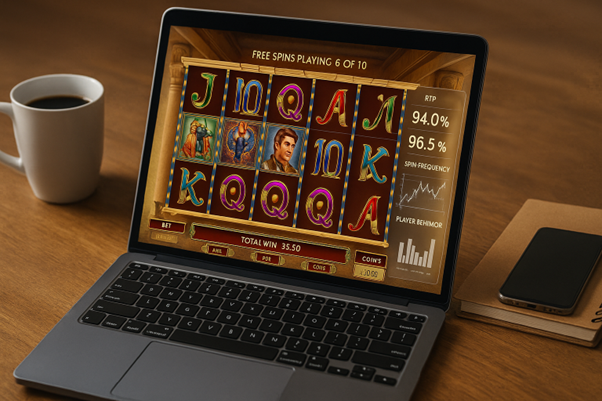Online casino operators are increasingly using artificial intelligence and big data to understand player behavior. These tools support fraud detection, marketing strategies, personalization, and initiatives for responsible gambling.
This article outlines how AI and data analysis work in practice, and illustrates the approach with a closer look at one of the most played slot games globally.
How Data Shapes Player Insights
Casinos collect vast amounts of information: every spin, stake, session length, device used, and deposit or withdrawal. Big data is the infrastructure that gathers and organizes these records. AI then interprets the patterns, predicts outcomes, and guides automated decisions.
Key applications include personalization, fraud prevention, and responsible play measures. Algorithms can detect which players prefer specific game types and tailor promotions to them. Predictive models highlight when a player may be close to leaving a platform, allowing operators to intervene early.
In parallel, AI systems monitor activity for unusual patterns that suggest fraud or account abuse. Responsible gaming functions use similar analysis, flagging potential problem behavior such as rapid deposit increases or excessively long sessions.
These processes help casinos improve engagement while complying with regulation and safeguarding users.
Case Study: Book of Dead
One of the best examples of how analytics highlights a game’s appeal is Play’n GO’s Book of Dead. Released in 2016, it remains among the top slots across regulated markets, and many players first discover it while browsing dedicated resources such as casino Book of Dead where detailed guides and community statistics are collected.
The slot uses an ancient Egyptian theme, with five reels and ten adjustable paylines. Its signature feature is a free spins round where one symbol expands across the reels, creating potential for large wins.
The game has an RTP of about 96.2 % and is known for high volatility, meaning players can expect long dry spells followed by the possibility of substantial payouts. Community-tracked data covering millions of spins suggests a hit rate near 26 % and a bonus round occurring roughly once every 190 spins.
These mechanics explain why the game sustains engagement despite its risk profile.
Regional statistics confirm its strong position. It consistently ranks first in many European markets, holds second place in Germany, and remains near the top globally.
For operators, this demonstrates how a balance of engaging theme, volatility, and bonus structure—supported by data-driven promotion—can secure long-term success.
Tools That Operators Apply
To move from raw numbers to actionable outcomes, operators rely on several AI-driven systems:
- Real-time analytics process streams of bets and clicks as they happen, so casinos can adjust promotions or stop suspicious behavior quickly.
- Machine learning models use historical data to forecast values such as how much a player might spend over time or how likely they are to return.
- Segmentation tools group users by factors like spending patterns, favorite volatility level, or preferred themes, allowing more accurate targeting.
- Dashboards and visualization platforms display key performance indicators such as session duration, average bet size, and bonus usage, making trends easier to track.
Even with automation, human oversight remains central. Operators must interpret the output, ensure compliance, and protect personal data.
Practical Recommendations
Operators and players both benefit from understanding how data is used. Insights taken from analytics are not just abstract reports; they directly influence decisions, game experiences, and personal strategies. With clearer knowledge of what numbers mean, operators can refine services and players can make more confident choices.
For Operators:
- Track player engagement metrics such as drop-off points after losses or response to promotions, and adjust offers accordingly. Monitoring device usage and regional differences can also reveal when certain campaigns work best.
- Use churn prediction to identify accounts likely to become inactive and apply retention measures early. For instance, data may show when VIP users need tailored contact or bonuses to remain active.
- Integrate responsible gaming checks to protect vulnerable users without alienating loyal ones. Combining automated alerts with human review makes the process more effective.
For Players:
- Pay attention to volatility and RTP values: high volatility titles require larger bankrolls and patience. Recognizing this early helps avoid frustration during long losing streaks.
- Try demo versions to evaluate gameplay before investing money. This allows comparison between games and understanding of mechanics without financial risk.
- Review conditions on bonuses, as wagering requirements can limit value. Being aware of fine print prevents disappointment and wasted deposits.
- Use casino tools like deposit caps or time limits if spending or play length increases noticeably. These features are designed to support balance and keep play sustainable over time.
Conclusion
AI and big data allow online casinos to gain detailed insights into player behavior, from preferences to risk indicators. These technologies help improve security, support responsible gaming, and guide development of more engaging titles.
The example of Book of Dead shows how mechanics and data together shape long-term popularity. For operators, the challenge is to use insights responsibly; for players, the value lies in recognizing how the numbers influence their experience.











